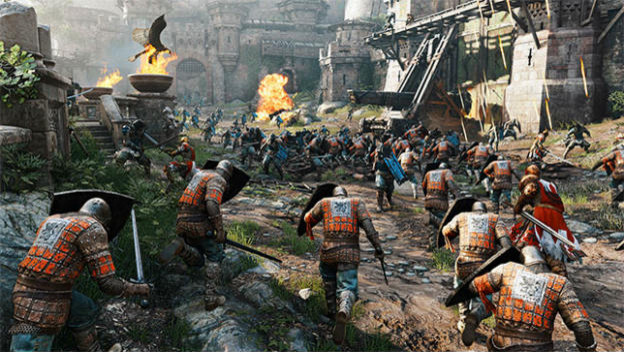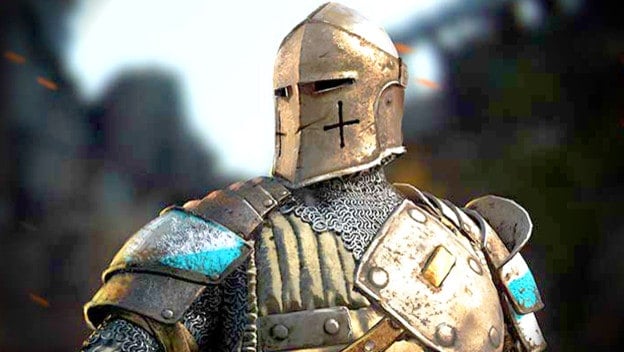For Honor is here and it flopped. It’s okay to say that now that the game is a month old, the price has already dropped by $10 on the PlayStation 4 and Xbox One, and people are already forgetting it exists in the face of actually amazing games like The Legend of Zelda: Breath of the Wild , Horizon: Zero Dawn, and Persona 5, right? Right. For Honor flopped. Which isn’t surprising, because it is a game with plenty of issues. No matter how much potential it had, Ubisoft squandered it with an unprepared launch and a lot of greed.
A big part of that unpreparedness appeared before launch, which is something that should have sent up red flags. During For Honor’ s development, the story always kept changing. At one point, there was going to be local cooperative multiplayer. We had a point where it was going to have an offline, single player element. The narrative kept shifting, and never in a good direction. It seemed like the vision for the game was constantly being compromised and in flux, which doesn’t exactly inspire confidence in the final product.
Perhaps it helped, in part, create the flailing reception into the actual world of For Honor . We already know that online-only games never work as intended at launch, so we were in trouble the second the game lost an offline option. It doesn’t happen. No matter how much beta testing is done, no company ever has every base covered. I mean, we’re in a world where not everyone even has the internet speeds necessary to enjoy an average experience. Considering this is not only an always online game, but one that relies on peer-to-peer networking, that’s an absolute disaster in the making. I lost track of all the error codes I encountered the first two weeks I played.
This, in turn, led to a mass exodus from For Honor . At the beginning of March, it was revealed that the game had lost over half of its playerbase on PC . This was after the game lost about 36% of its total userbase after its beta. Within a month, people were evacuating. Those internet issues had to play a part. I mean, if you can’t get online to play or play online properly, then why even bother?
The prevalence of For Honor farmers was another issue, one that still hasn’t been completely resolved. Some people have jury-rigged controllers so they can remain active in games and receive rewards, getting the Steel and items they need to get ahead without actually playing. While Ubisoft did issue about 1,500 three-day bans , that’s a drop in the bucket. You’re still bound to encounter cheaters and people there who are screwing around to better themselves at your expense.

Speaking of expense, For Honor has also been revealed as quite the expensive game. There are a lot of fiddly bits and pieces you need to buy in-game with Steel, which you either earn or pay real cash to acquire. If you want extra characters, as well as equipment for them, you have to pay up. A Reddit user named bystander007 has worked out that it costs 1,098,000 Steel to buy everything immediately available in For Honor right now, and will eventually cost 1,647,000 Steel to unlock everything after the season pass content is released. That means it’d cost $732 in real cash to acquire all immediately available stuff now with real money, and $1,100 eventually when everything is available. If someone spent real time on the game earning Steel, collecting 1,200 a day in two hours, it’d take 921 days to get everything available now and 1,373 days to get everything after the DLC is released. This isn’t even keeping track of Steel used to upgrade existing equipment you own.
For Honor isn’t what we wanted it to be. It might not even be what the developers originally wanted it to be. It is a game that has so much potential and such a neat fighting system, but also has faced one problem after the other. It was in flux in development. The always online element has failed us. Users are already leaving the game. Worst of all, Ubisoft is nickel and diming us on microtransactions. It’s a sad state of affairs.
